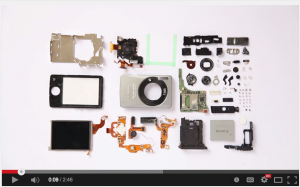” If the United Nations was fully funded why would we need the Arc or social enterprise” Do not mistaken the Arc initiative with a charity. In fact, organizations like the United Nations and the Arc both have a unique way of approaching the alarming problems in developing countries and achieve very different results. In time of catastrophes, and natural disasters, the aid provided by the United Nations and other charitable organizations, provide a tremendous amount of help to those in unfortunate conditions. The Arc tends to achieve something of a more long-term result. By nurturing the entrepreneurial spirit and promoting self-sustainability through hands-on programs, individuals in developing countries get the chance to pursue their goals of becoming young entrepreneurs. These opportunities are often not widely available to people in regions that poverty and famine are incredibly common issues. By promoting workshops, programs and internships for those interested, people now have a opening to become independent from charitable donations by becoming self-sustainable.
conditions. The Arc tends to achieve something of a more long-term result. By nurturing the entrepreneurial spirit and promoting self-sustainability through hands-on programs, individuals in developing countries get the chance to pursue their goals of becoming young entrepreneurs. These opportunities are often not widely available to people in regions that poverty and famine are incredibly common issues. By promoting workshops, programs and internships for those interested, people now have a opening to become independent from charitable donations by becoming self-sustainable.
Monthly Archives: November 2014
[RESPONSE – STEVEN GAO] – The Next Revolutionary Smartphone Will Come in Pieces
This article is in response to Steven Gao’s article.
What once seemed like science fiction just a year ago has turned into a reality. PhoneBloks holds the technology of a fully-functioning modular phone. This means you can take apart physical pieces of the phone each a unique feature. Their concept video last year explains the final product quite well.
If consumers are open to the concept of the modular phone and the technology exists to support it, the release of PhoneBloks will be the largest since the release of the first iPhone in 2007. Owned by Google, this piece of technology has a fighting chance to dominate the entry-level mobile phone market, and compete with the iPhone, a smartphone that holds the exact opposite values; The concept of consumers not knowing what they want and their belief in closed systems (physically and in software). It’s motto of “built exclusively for 6 billion people” emphasizes on its incredibly large user base. Because humans love to customize and the freedom to express, I believe this phone has a competitive advantage over every manufacturer in the world.
With the purchase by Google made of PhoneBloks, that was an increase of a distribution channel of Google’s mobile OS, Android. The success of the Nexus devices that ran Vanilla Android (stock, untouched) with a niche fan base proves that there is a great chance of these modular phones become the primary carriers of Android OS. With Samsung’s sales dipping in the last quarter, they should be seriously concerned with the decreasing demand and incentive for customers to purchase Android phones from third party manufacturers.
[RESPONSE – NADINE KU] – Compass Card Leading the Wrong Direction
This is a response to Nadine Ku’s article. News Source
Being a commuter for much of my student life in high school has allowed me to believe how flawed our transit system is in Greater Vancouver. When Translink first announced an electronic ticketing system followed by the contest to name this system, I was relieved. Having been to Hong Kong and using it’s incredibly successfully Octopus Card system, I find it hard to believe how long it is taking Translink to adapt to it. Along with the costly project to implement ticketing gates and purchase machines in each Skytrain station, Compass cards have been rolled out for beta testing but are experience glitches with its “tap-out” feature. Errors with its technological system should not be happening because this is not new technology; Hong Kong has been using for over 17 years. The delay in the system has cost Translink a hefty amount of money because of the inflated costs of implementation.
One of the reasons why Translink thought the decision to introduce an electronic ticketing system was beneficial/lucrative was because of the amount of riders who don’t pay for fare. It has become incredibly common until recently, Translink tightened up on security to catch and fine the “free-riders.” Everyday until this system is released, implementation and “free-riders” will cost more of Translink’s money and take an even longer period of time to break even.

